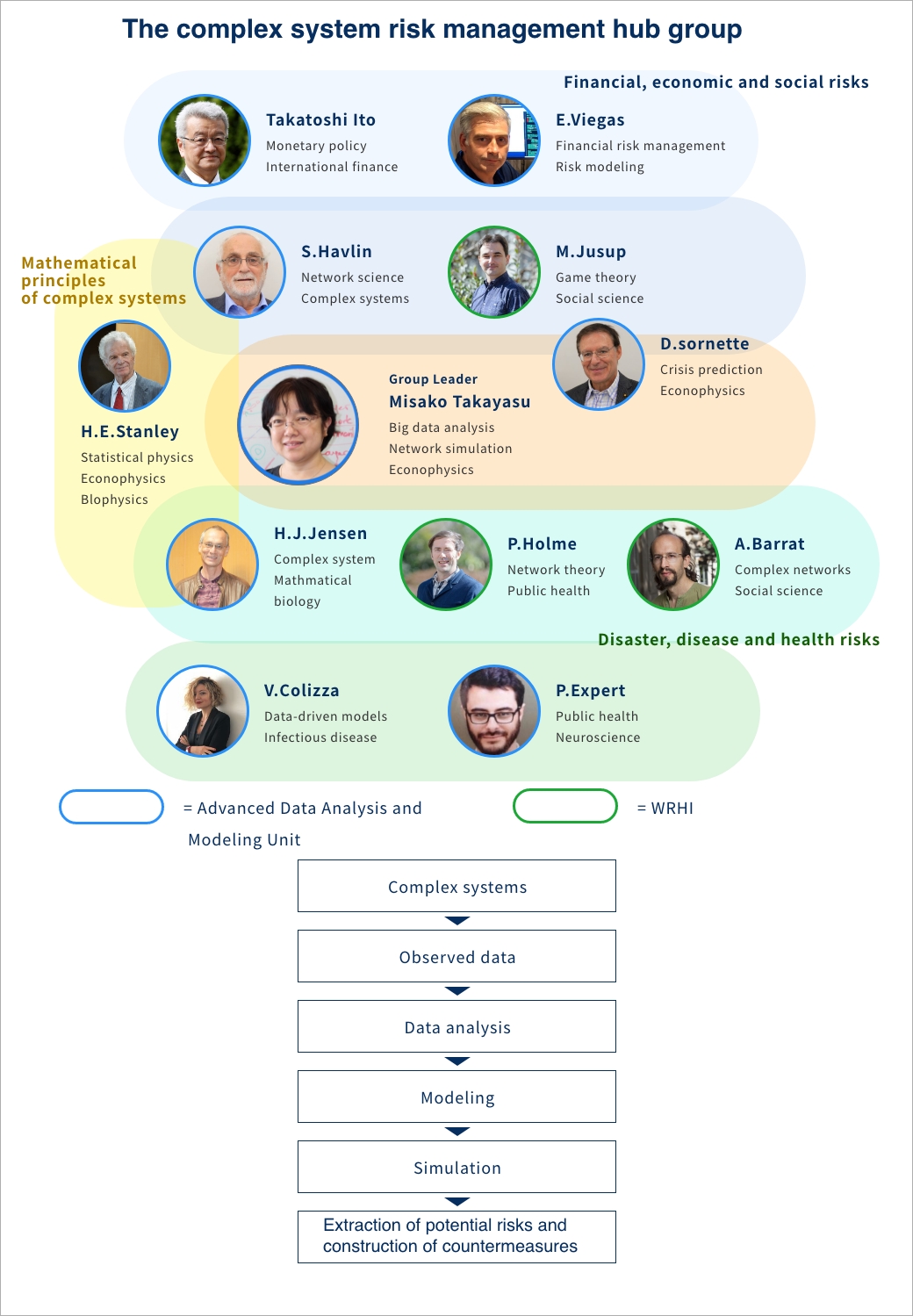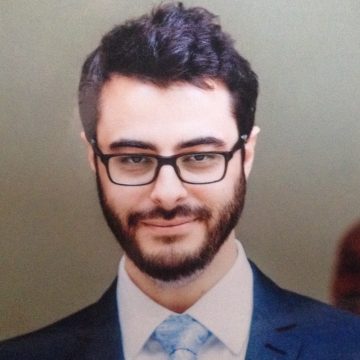The complex system risk management hub group

Group Leader Misako Takayasu
Objective
By performing big data analysis, hybrid modeling, and large-scale simulation we will search potential risks in various complex systems in society, helping to put in place measures to avoid system failure and rapidly recover from challenges such as Covid-19.
For introduction video, click here.
Outcome
By collecting and mathematically analyzing various big data, including economic, financial, social media, and GPS data, we will quantitatively evaluate the current state of complex systems in society. When disasters or epidemics occur, we can check the validity of countermeasures by numerical simulations that combine our basic qualitative models in a powerful hybrid approach.

Satellite LaboGroup Takayasu

The most urgent problem currently facing society is to devise the best strategies to fight to Covid-19 pandemic. We are contributing in this endeavor by observing the movement of people using smartphone GPS data, changes in economic activity using survey data from business firms, and shifts in national sentiment using social media data. Through simulation, we are exploring what kind of behavioral regulations can be introduced to suppress infection and maintain and expand economic activities.
Economic, Financial and Social Systems
Chain Bankruptcy Risk Modeling
Due to the ongoing Covid-19 pandemic, the risk of corporate bankruptcy is rapidly increasing. Using data provided by Teikoku Data Bank Co. Ltd, which is conducting joint research with our group, we model the risk of domino bankruptcy events based on simulations of corporate business-relation networks. This research can be used to the plan countermeasures and economic revitalization measures.
Financial System Stability Risk Management
Financial markets have been volatile since the beginning of this year, and it is expected that the situation will remain unstable for some time to come. Based on data analysis of financial markets and simulations based on the behavioral characteristics of market participants, we will derive measures to maintain market stability
Disaster, disease and health risks
Infectious disease model
The Covid-19 and other pandemics can be modeled using mathematical models of infection transmission that are critical in policy decision-making. We aim to construct complex network models that take into account the relationship between human social behavior and economic activity, and to develop data assimilation method for numerical simulation.
Simulating ‘human-flow’ during emergencies
We analyze patterns in the movement of people at the city level, using smartphone GPS data to construct basic mathematical models. Based on this modeling, we simulate human-flow patterns under various conditions and clarify how urban human-flow changes depending on the introduction on regulations that restrict people’s movements.
Interview
-
Paul Expert

The Risk Management of Complex Systems Lab is a very timely addition to the WRHI. The breadth of topics represented, from economics and finance to epidemiology and neuroscience, is a perfect display of the central role complex systems have in our way to represent and understand the world around us. I am extremely excited to join the Lab, as its scale is perfect to foster interactions between the different member, and can thus act as a catalyst for exchanges and facilitate the development of transversal projects. My ambition for our work here is to develop state of the art methodologies to characterise spatio-temporal patterns and apply them to try and tackle concrete societal problems, such as understanding how to optimise real human mobility patterns to minimise epidemic outbreak size, or characterise brain function in health and disease
-
Eduardo Viega

I hope that the work, collaboration and exchange of ideas within WRHI will catalyse the use and application of complexity methods to a wider audience within the financial industry and capital markets so that market practices within financial risk management and prudential supervision can be improved and enhanced. A particular research ambition is the dissemination and application of the concept of risk as a relative quantity – akin to fitness within biological systems – where measurement and quantification is dependent on the structure and evolution of the interactions among market agents. The endogenous and static nature of risk management systems and prudential frameworks – where risk is quantified, compartmentalised, and managed in isolation – played as significant role in the emergence of financial and economic crises. Yet to date, these issues have not been fully addressed.
